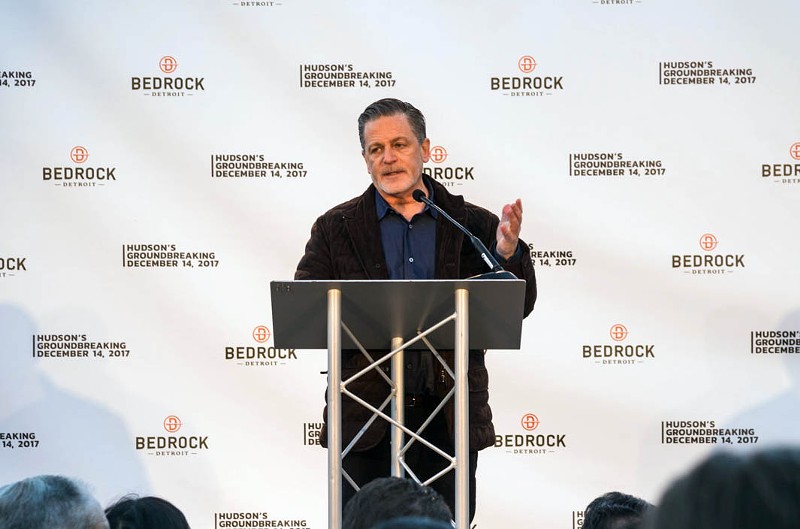Detroit council president lays out conditions for Dan Gilbert’s proposed $60M tax break
Taxpayers are questioning why the cash-strapped city should provide tax incentives for one of the wealthiest people on the planet
Detroit City Council President Mary Sheffield proposed new conditions for a controversial $60 million tax break to Dan Gilbert’s real estate firm to develop its delayed Hudson’s site project in downtown.
The council has postponed voting on the tax incentives for three weeks in a row amid backlash from residents who question why the cash-strapped city would give tax breaks to a billionaire’s company for a project already underway.
Bedrock is asking for a 10-year local tax break, on top of more than $200 million the company has already received in state and local subsidies and development incentives. Gilbert also received the site in the heart of downtown for $1.
Sheffield proposed the following conditions:
• 30% of Bedrock’s housing portfolio must be dedicated to affordable housing at 60% of the area median income. It’s currently at 20%.
• Bedrock must dedicate 20% of it’s street-level retail space to Detroit small businesses and community programming.
• A $1 million commitment to the development and growth of small Detroit businesses.
• An annual transparency report by the Detroit Civil Rights, Inclusion & Opportunity Department to determine if Bedrock fulfilled its agreements.
It’s not clear if there is an enforcement mechanism in the event that Bedrock doesn’t meet the conditions.
Mayor Mike Duggan’s office says it supports Sheffield’s proposal.
“The mayor has encouraged Bedrock to work with members of the City Council to develop a package that will speak to their concerns because he feels there is a need for that and feels it is necessary for this project and the abatement, which he also supports, to go forward,” Duggan’s spokesman John Roach tells Metro Times.
A majority of the council’s nine members appeared to have enough votes to approve the tax break without any conditions on June 14, but they delayed approving the incentives amid public outcry.
City officials noted that the tax incentives are heavily outweighed by what the city will receive in income taxes over the life of the building. And the property taxes from the abatement must be spent downtown, so it doesn’t impact city services.
Stay connected with Detroit Metro Times. Subscribe to our newsletters, and follow us on Google News, Apple News, Twitter, Facebook, Instagram, Reddit, or TikTok.


